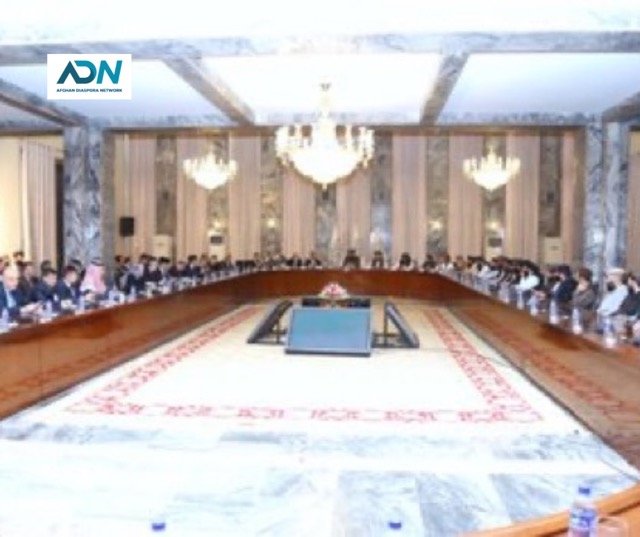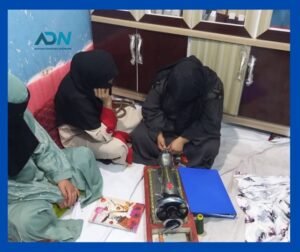A Regional Realignment: Afghanistan Diversifies Trade Amid Tensions With Pakistan

Taliban Foreign Minister Amir Khan Muttaqi addresses graduates of the Diplomacy Institute. Photo: @MoFA
By SS Ahmad
Tensions between Afghanistan and Pakistan have resurfaced after Foreign Minister Amir Khan Muttaqi accused Islamabad of making “unreasonable and impractical” demands during recent negotiations. Speaking at a graduation ceremony at the Foreign Ministry’s Diplomacy Institute in Kabul, Muttaqi said Pakistan’s delegation had asked the “Islamic Emirate” to “guarantee” that no future security incidents would occur on Pakistani soil – a request he described as unrealistic.
While reaffirming Kabul’s interest in maintaining neighborly relations, Muttaqi warned that any move undermining Afghanistan’s territorial integrity would face a decisive response.
“We seek engagement and good relations based on mutual respect,” he said. “But if anyone attempts projects that violate our sovereignty, Afghanistan has the right to defend itself – and it will.”
The Foreign Minister of Taliban argued that Pakistan is attempting to shift its long-standing internal issues onto Afghanistan. He noted that the Tehreek-e-Taliban Pakistan (TTP) has been active for decades and reminded audiences of Pakistan’s own official figures that tens of thousands of Pakistanis were killed in the past 20 years of conflict.
“These problems are not new,” he said. “Now they try to link everything to Afghanistan.”
Muttaqi also criticized what he described as Pakistan’s use of economic pressure – including repeated closures of key trade crossings – and manipulation of refugee issues to influence Kabul.
Kabul Turns Toward Trade Diversification
The diplomatic dispute has been accompanied by a sharp deterioration in economic ties. Following the closure of commercial crossing posts, Afghan officials said Pakistan’s leverage is weakening as Afghanistan develops alternative trade routes.
Nuruddin Azizi, Taliban’s Minister of Industry and Commerce, said Kabul is prepared to absorb short-term financial losses to protect national interests.
“Even if there is a loss, we accept it for the sake of God, the nation, the martyrs, and in defense of our Emirate and Shariah because we have no other choice and are compelled to implement this decision,” Tolo news quoted Azizi.
According to the Afghanistan Chamber of Commerce and Investment (ACCI), Afghanistan’s geography – connecting South Asia, Central Asia, and the Middle East – provides several viable alternatives to Pakistan. The ACCI identified multiple corridors: Iran’s Chabahar Port, rail links through Uzbekistan and Turkmenistan, transit routes via Tajikistan, the Wakhan Corridor toward China, expanding air corridors for exports, and the Lapis Lazuli Corridor connecting Afghanistan to Europe.
“We are not dependent on a single market,” said Jan Agha Naveed, the ACCI spokesperson. “Goods can move through Iran, Uzbekistan, Turkmenistan, Tajikistan – by rail or by road. Rail infrastructure is expanding, and maritime access is improving.”
Economists argue that Afghanistan’s decades-long dependence on Pakistani ports and transit routes has been a structural weakness. Abdul Nasir Rashtia, an economic analyst, said to Kabul-based Tolo news that Afghanistan should seize the current geopolitical moment to reduce exposure to Pakistani pressure.
“Chabahar, Bandar Abbas, Central Asia, and the Turkmenistan–Turkey–Europe corridor are all viable alternatives,” he said.
Another analyst, Mohammad Nabi Afghan, suggested that new Central Asian corridors could turn the crisis into opportunity.
“These routes may be slightly more expensive, but they are faster and more reliable than relying solely on Pakistan,” he said.
Amid heightened tensions, Taliban’s Deputy Prime Minister for Economic Affairs Mullah Abdul Ghani Baradar recently told Afghan traders that the government will accelerate the shift toward alternative routes. He also announced that Afghanistan will ban the import of Pakistani-produced medicines within three months.
SS Ahmad is a freelance researcher and journalist based in, Kabul Afghanistan.
Note: The contents of the article are of sole responsibility of the author. Afghan Diaspora Network will not be responsible for any inaccurate or incorrect statement in the articles.






